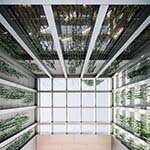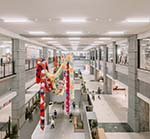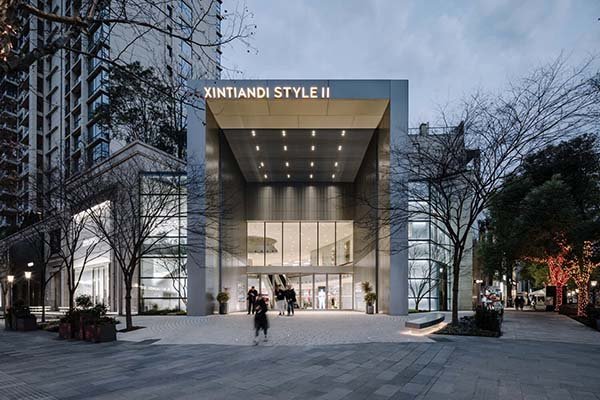Xintiandi Style II is a playful dialogue between old and new, its community, and a much-needed statement about recycling and sustainability. Together we Have been striving to express an unseen design approach, with great attention to the community, environment, and sustainability. The building itself is a city block and operates as one, with several entrances on opposite streets that connect its residential, office, and commercial surroundings. Intensifying this connection was our intention. By activating and opening the building, we invite people in and let it function as an interior street, leading visitors through the building. The mall becomes then a modern public space, in a dynamized neighborhood, where people gather and connect.
It aims to rebuild and redefine the concept of retail, with effective architectural interventions that bridge the gap between the luxury of mall architecture and the eco-friendly approach experience. Three keywords inspired the new Xintiandi Style II: reusing, recycling, and reducing. The concept is expressed throughout the overall mall, by using recycled materials, recyclable surfaces, and sustainable solutions.
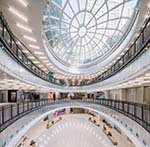

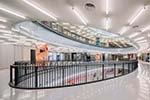

Demolishing a building always produces a lot of waste. As a sustainable design strategy, we keep and celebrate the most important original elements that characterize the existing mall, while the demolished materials are crushed, reassembled, and reused in other forms and shapes. All materials from the construction site are transformed into new finishes, furniture, and objects. The design aims to instate a dialogue between old and new, past, and present. On one hand, the overall space shows the real nature of the building, exposing the existing concrete columns and beams. The several layers of the buildings are revealed and not hidden under a big layer of unnecessary material finishes. The canyon, an urban element, transforms the lower ground into a sequence of recycled aluminum ‘rooms’. Creating a continuance of experiences, each characterized by the brands within them, unique furniture configurations inviting people to stay and interact with the brands. A space changed from a long straight corridor to a string of tailored experiences.
